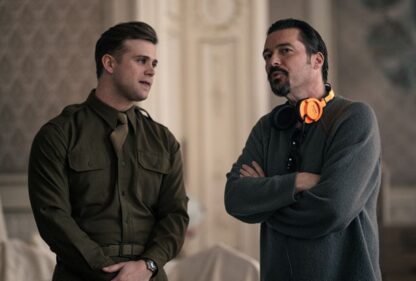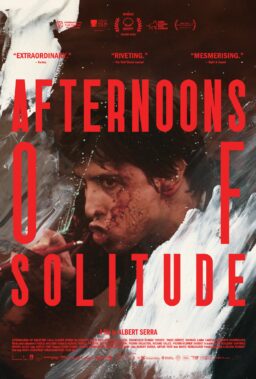“If we did nothing else, we brought Rasputin into focus” Franklin Schaffner said in a musing sort of voice. “Rasputin wasn’t really a mystic. He didn’t heal the child through supernatural powers. Perhaps he was simply able to relax the child, and that brought down his temperature. That’s my theory . . .”
Schaffner sipped at a bourbon and water, which he has prescribed for himself as an anti-flu measure.
“All Rasputin wanted to do was hold onto his position,” he said. “He had a lot of good ideas, as a matter of fact. But the bureaucracy of czarist Russia made it impossible for anyone to function. Even Rasputin.”
And that is more or less the portrait of Rasputin drawn by Schaffner in his new road show epic, “Nicholas and Alexandra,” which opens Wednesday at the Bismarck. Fans of the traditional view of Rasputin will be cheered, however, to learn that even in the Schaffner version the mad monk chug-a-lugs a tumbler of poison, and is finally killed only after absorbing enough of the regime’s bullets to hold the Western front for three days.
Schaffner got into the business of directing epics more or less without planning to, he said during an interview here. “Planet of the Apes” (1968) cost $5 million, but that was including 25 per cent studio overhead and wasn’t really an epic budget. Still, “Planet” had an epic feel to it, and then Schaffner got the assignment to do “Patton.”
“After you’ve done an epic, you’re sort of a member of the club,” he said. “At any given time, there are 8 or 10 directors who belong. It’s kind of a grueling experience. During ‘Patton,’ I lost 16 pounds. On ‘Nicholas and Alexandra,’ I lost 26 pounds. But the effort seems to be paying off . . . the box office is running ahead of ‘Oliver!’ so far.”
The problem of checking “Nicholas and Alexandra” for historical accuracy was made simple, he said, because the original best seller by Robert K. Massie was so thoroughly researched.
“Massie originally became interested in the czar and czarina because he also had a child who suffered from hemophilia,” Schaffner said. “Massie’s wife reads and speaks Russian fluently and is a translator of Russian poetry, so that made it easy for him to gain access to Russian documents. So far as I know, no one has faulted the book on his historical details.”
That will no doubt disappoint subscribers to the Princess Anastasia Lives theory, since Anastasia is assassinated with the other members of her family in the film’s inevitable ending. Along the way, however, the movie’s attention to actual historical detail creates a portrait of the czar that is very human, vulnerable and unlike popular notions of Bloody Nicholas.
“It was easier to create the central characters from scratch because we were using movie unknowns,” Schaffner said.
“With a Richard Burton, you have to waste a reel convincing people that isn’t really Richard Burton. This time, we had an opposite sort of problem because there are so many famous actors in supporting roles. We wanted them to be characters, not cameos, and I think we succeeded. Laurence Olivier is on the screen maybe three times before audiences even realize who he is.”











